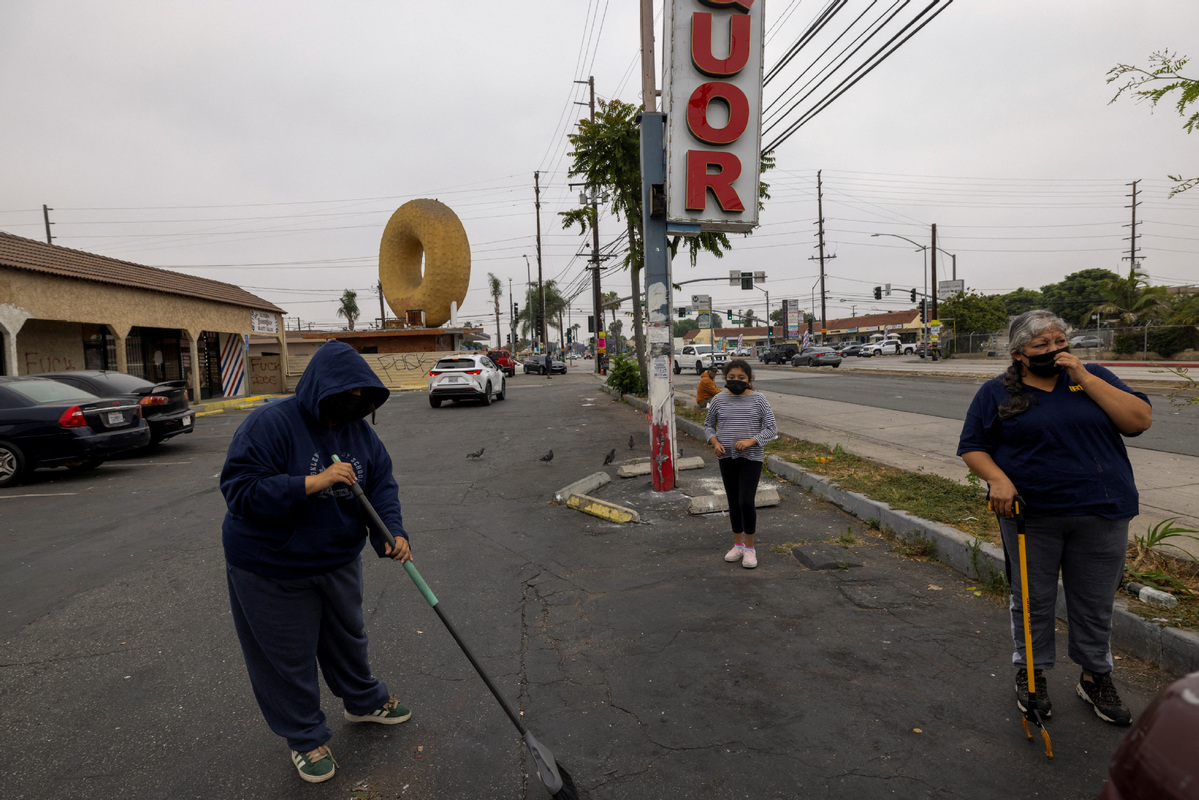Study says Trump administration's mass deportation policy to cost California dearly


SACRAMENTO, United States - California's economy could face significant setbacks if the US President Donald Trump's administration proceeds with plans to deport the state's estimated 2.3 million undocumented residents, a recent study has said.
The state's economy would shed roughly 275 billion US dollars a year, said a study released on Tuesday by the Bay Area Council Economic Institute and the University of California, Merced (UC Merced).
Researchers warned the shock would slice nearly 5 percent off the state's GDP, erase 18 billion dollars in state and local tax collections and drop California from the world's fourth-largest economy to seventh.
Maria Elena Young, a public health professor who helped write the report, said in the study that undocumented immigrants "are intricately tied to our communities and the economy of the state".
Without them, she added, employers from lettuce fields in Salinas to food courts in Silicon Valley would scramble to fill jobs that native-born workers either cannot or will not do.
The findings came as federal agents intensify workplace raids. Last week, at least 35 people were detained when Immigration and Customs Enforcement (ICE) teams swept berry farms and packinghouses in Ventura County, leaving "an eerie silence" over fields that normally hum with harvest crews, the Los Angeles Times reported.
Growers reported losing entire shifts and feared that their fruit would rot before replacement workers could be hired.
Sector impacts are stark. Construction, with undocumented workers accounting for roughly 26 percent of frontline labor, would contract by 16 percent, analysts warned.
Homebuilders in the Sacramento area said crews had already shrunk after smaller raids in nearby Yolo County, warning that extended build times are beginning to inflate carrying costs for buyers.
Agriculture, where one in three field hands lacks legal status, would shrink by 14 percent. Kern County peach growers told researchers that a single raid in May kept a quarter of workers from returning the next morning, causing millions of dollars in losses.
Hospitality and eldercare would feel a similar shock as well.
Los Angeles hotels warned they would have to close entire floors and raise room rates if 12 percent of housekeepers disappear at the height of tourist season. Home-care agencies said deportations could remove more than 110,000 aides, forcing families to leave paid jobs to look after aging relatives.
Meanwhile, undocumented Californians own nearly one in 10 sole proprietorships, so their departure would also shutter storefronts and shrink downtown sales tax revenue at a moment when cities face budget gaps.
Beyond payrolls, immigrant spending props up local demand. Two-thirds of undocumented residents have lived in California for at least a decade, with almost 700,000 owning homes.
Economists at UC Merced calculated that every 100,000 deportations would wipe out 6.4 billion in retail sales and nearly 1 billion in freight demand tied to restocking those stores.
Financial spillovers worry lenders. A Farm Credit cooperative in the Central Valley told researchers that loan write-offs could double if crops are left unpicked, jeopardizing financing for next season's planting.
Construction lenders say half-built subdivisions would erode collateral values. Regional bank Hanmi Financial, in a March filing, warned that mass removals could sap deposits and credit demand in immigrant neighborhoods.
Business groups are urging the Trump administration to rethink.
The Western Agricultural Processors Association said raisin and almond packers already bid against each other for shrinking crews, while the California Restaurant Association warned that even a 10 percent staffing gap would push menu prices higher, just as consumers battle inflation.
The US Chamber of Commerce, in a national statement this month, argued that enforcement-only strategies "exacerbate chronic worker shortages" and called for expanded legal pathways.
With peak harvest only weeks away and ICE arrest quotas set at 3000 a day nationwide, farm owners, homebuilders and city mayors across the Golden State cried out, saying the question is no longer political but existential: Can California maintain growth if the labor force that fuels its fields, job sites and hotel corridors is forced to leave?
































